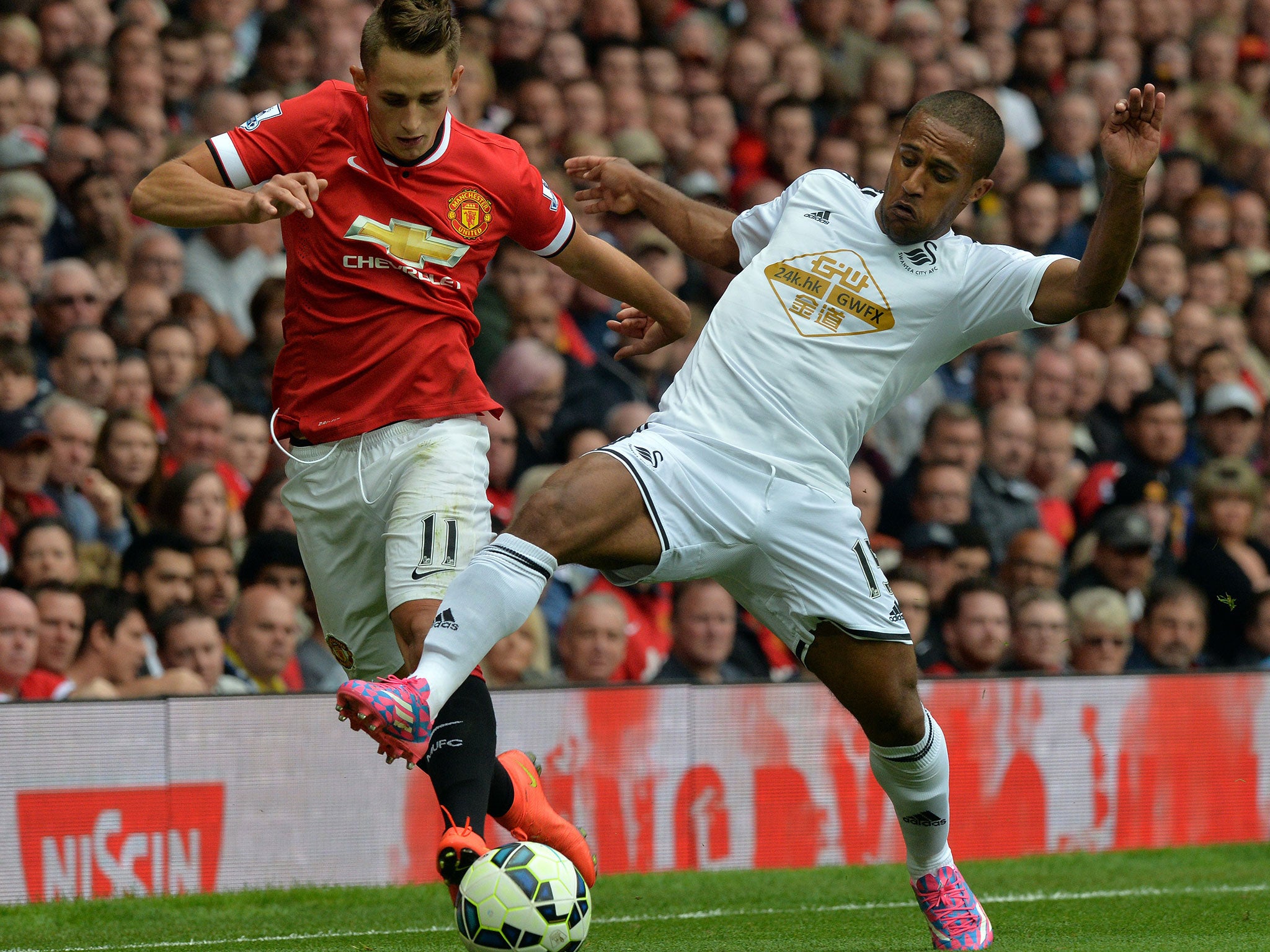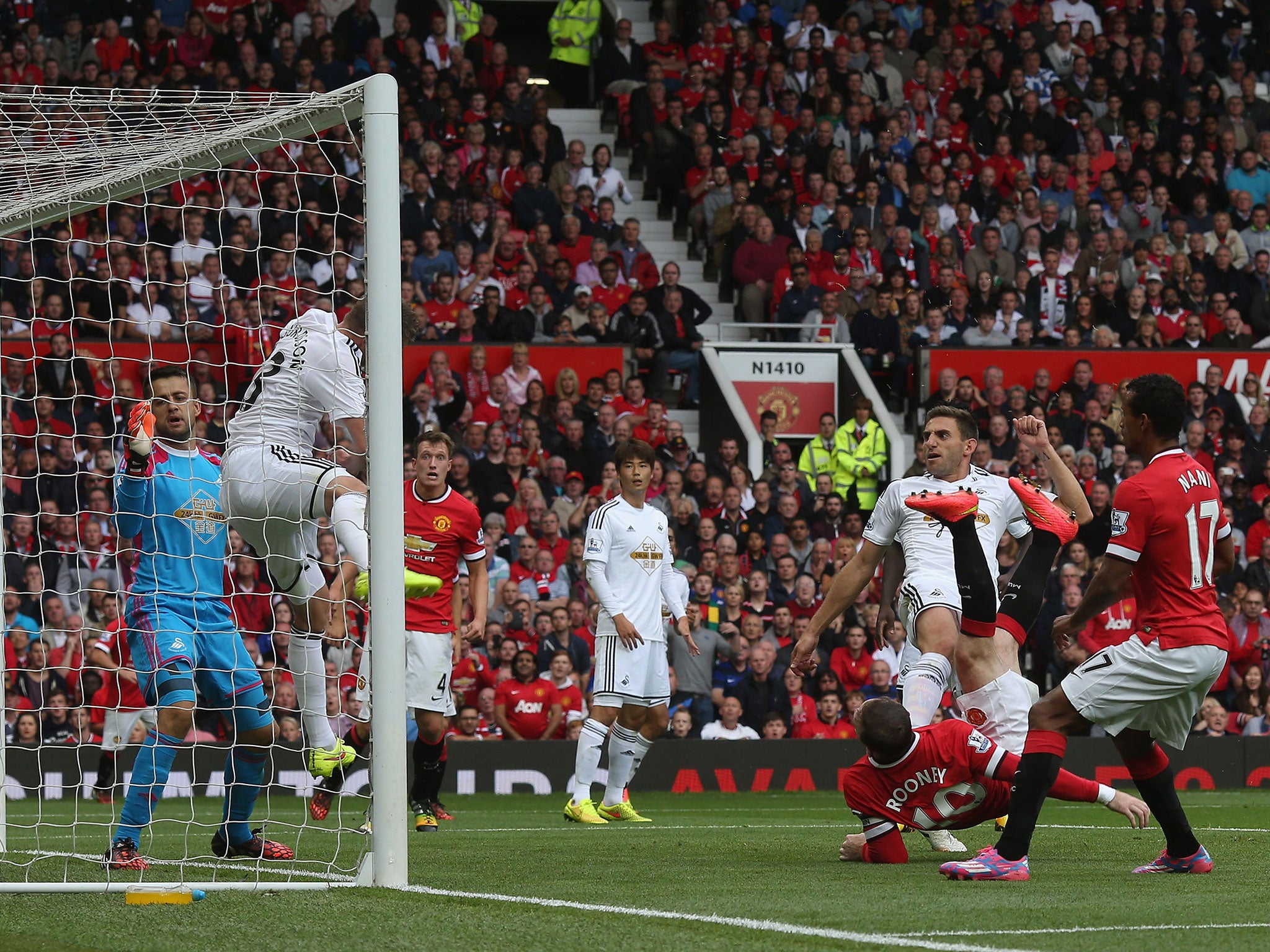Manchester United vs Swansea: Glazers can avoid their responsibility no longer
They will have to make financial sacrifices to give Van Gaal the tools

Your support helps us to tell the story
From reproductive rights to climate change to Big Tech, The Independent is on the ground when the story is developing. Whether it's investigating the financials of Elon Musk's pro-Trump PAC or producing our latest documentary, 'The A Word', which shines a light on the American women fighting for reproductive rights, we know how important it is to parse out the facts from the messaging.
At such a critical moment in US history, we need reporters on the ground. Your donation allows us to keep sending journalists to speak to both sides of the story.
The Independent is trusted by Americans across the entire political spectrum. And unlike many other quality news outlets, we choose not to lock Americans out of our reporting and analysis with paywalls. We believe quality journalism should be available to everyone, paid for by those who can afford it.
Your support makes all the difference.Avi Glazer, a parasitic presence in the Old Trafford directors’ box, wore the concerned frown of a speculator whose punt on the price of pork bellies had proved spectacularly ill-judged. He may have a rudimentary grasp of professional football, but he knew the game was up.
Is he a brilliant businessman or a corporate mugger? The difference is inconsequential as far as Manchester United are concerned. His family have taken £200million from the club in share sales and must be called to account.
The notion may appear far-fetched, and it is certainly farcical, but this could be the best defeat of Louis van Gaal’s career. The Glazers, whose avarice and opportunism have cost United £700m in assorted debt charges, can no longer avoid their responsibilities.
Though it goes against every fibre of their being, they will have to make financial sacrifices to give the Dutchman the tools to do his job. Failure to do so would jeopardise their one-way investment: we have been told, ad nauseam, that Van Gaal is not the type to suffer fools or risk his reputation.
He may have appeared sanguine, sufficiently self-possessed to sign autographs and shake supporters’ hands on his way to the first meaningful inquest of his career in English football, but he is a realist.
He spoke of confidence being “smashed down” by United’s first home defeat on the opening day since 1972. “Of course we need defenders,” he said during a stern TV interview. “But we never played as a team. We have to evaluate why.”
He knew, as well as anyone, that a David Moyes team, lacking such pace, physicality and tactical coherence, would have been derided. This was a non-performance which challenged assumptions of progress and predictions of a reversion to former glories.
Swansea’s first goal was a product of United’s inexperience, uncertainty and lack of communication. It proved that tactical principles are only as persuasive as the players who are expected to employ them.
Their winning goal was the result of naivety and poor decision making, the natural consequence of a cobbled-together back four, in which Ashley Young and Phil Jones struggled at full-back.
The abandonment of a back three at half time – it looked more like an over-optimistic experiment than an enduring statement of a change in philosophy – was unsurprising. United’s defenders were ill at ease, unsure whether to drop deep or close the ball down.
Tellingly, United’s equaliser, a conventional set-piece goal created by the presence of Jones at the near post and the improvisational skills of Wayne Rooney inside the six-yard box, was hardly a harbinger of revolution.
Little wonder Van Gaal, absorbed in making notes, seemed faintly disgusted by the high fiving going on around him by his staff and substitutes.
United were once defined by their defenders. It is cruel to point out that Tyler Blackett and Chris Smalling will never match the excellence of such partnerships as Steve Bruce and Gary Pallister, or Rio Ferdinand and Nemanja Vidic, but those are the standards by which they will be judged.
The manner of yesterday’s defeat will inevitably increase the price United will have to pay for immediate reinforcements. It will also highlight justifiable doubts about the ability of Ed Woodward, the club’s executive vice-chairman, to oversee investments of the required magnitude.

His insistence he has mastered the intricacies of forward planning following last season’s failure to give Moyes recruits of sufficient stature does not bear scrutiny. It was obvious as early as Christmas that Ferdinand, Vidic and Patrice Evra were destined to move on.
The failure to buy at least one world-class central defender smacks of a dereliction of duty.
In midfield Ander Herrera is neat, tidy and unthreatening, hardly a bargain at £30m. Juan Mata, at £32m, looks a short, straight peg in a round hole. The least said about £27m Marouane Fellaini, who could easily have been sent off in a lumbering cameo appearance, the better.
The elite are engaged in an arms race. While Chelsea and Arsenal went nuclear, by buying early and well, United’s weapon of choice was a gold-plated peashooter. Recruitment, complicated by a lack of Champions League exposure, will become more difficult as the transfer window edges shut.
Toni Kroos, a £20m bargain, has been snapped up by Real Madrid. Cesc Fabregas identified Stamford Bridge as a better platform than Old Trafford.
Angel di Maria may prefer PSG, so United’s most likely signing is Daley Blind, who could play in a back three or as a defensive midfielder.
It’s payback time, and the fallout has already hit Florida.
Join our commenting forum
Join thought-provoking conversations, follow other Independent readers and see their replies
Comments